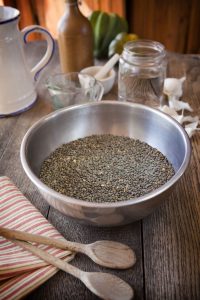For many seniors, heavily modified diets are prescribed by doctors and nutritionists as a way to combat disease. These diets often restrict many of the foods elders have enjoyed for years, beginning a gradual decline in quality of life due to lifestyle changes around dining.
But after years of being prescribed diets with restrictions targeted at sodium, fat, cholesterol, and sugar, can a liberalized diet approach begin to reverse this decline? It certainly seems odd that for decades, those considered elderly may finally get a reprieve and be given permission to “just eat.”
A One-Size-Fits-One Approach
As with all diet prescriptions, consideration of the individual is very important. A large percentage of older adults are able to live independent, vibrant lives, while adhering to their doctor’s advice. However, for those who reside in a senior living community due to physical and cognitive deterioration, liberalization of the diet may provide and increased quality of life along with other benefits.
A liberalized diet approach simply means relaxing the original diet prescriptions meant to control disease states like diabetes or hypertension. The goal is to promote quality of life and enjoyment of foods not previously permitted. Just a few bites of old favorites or family recipes may illicit memories from the past that help many older adults rediscover the enjoyment of dining experiences. Those who previously remained isolated in their rooms for meals may now want to dine in the dining room. The social aspect of dining promotes many positive attributes, including eating more and developing new friendships. Instead of dreading meal time, one now can look forward to it and view it as a highlight of the entire day – three times a day!
Addressing the Risk of Malnutrition
The prevalence of malnutrition increases as older adults advance from independent and assisted living to skilled nursing. The combination of advanced disease states and an increased need for assistance with basic daily needs, such as bathing and eating, are major contributors an overall decline.
For these people, every bite counts. Malnutrition is a precursor of poor clinical outcomes and a major indicator of early mortality. According to a review article published in Today’s Geriatric Medicine, those with significant weight loss (>5% x 1 month, >7.5% x 3 months, or > 10% x 6 months) can increase the risk of death up to 400% following a 5% weight loss in one month. As a preventative measure, skilled nursing communities can adapt a liberalized diet approach so that upon admission, all residents are not ordered restrictive diets unless seen as absolutely necessary by the physician. Liberalizing diets is a philosophical approach and needs to be supported by all care givers and medical experts.
“New Dining Standards & Practices”
Interestingly, recommendations to liberalize are not new. In 2011, the Pioneer Network released their “New Dining Standards & Practices” that focuses on overall dining standards for senior living communities. A large part of their recommendations include diet liberalization. The Pioneer Network advocates for person-directed care through changing institutional models to those that promote choice, flexibility, and ultimately settings that residents thrive in – not decline in. It was not until March 2013 that Centers for Medicare & Medicaid Services (CMS) publically supported the guidelines. Since then, liberalized diets have become a significant piece of the culture change movement specific to senior living communities.
Through their research, the Pioneer Network was able to substantiate that restrictive diets were not beneficial to older adults. More specifically, those individuals with chronic conditions did not benefit from sodium and sugar restrictions and that even those with texture modifications such as puree, did not benefit either. Their main recommendation supports a general diet with diet restrictions including therapeutic and texture modification ordered only when highly recommended by the physician due to the severity of the resident’s disease state.
Unidine’s Approach
 Even prior to the Pioneer Networks release of their dining standards, Unidine Corporation promoted liberalized diets due to their commitment to sourcing only fresh ingredients and cooking from scratch.
Even prior to the Pioneer Networks release of their dining standards, Unidine Corporation promoted liberalized diets due to their commitment to sourcing only fresh ingredients and cooking from scratch.
As detailed in their Fresh Food Pledge, Unidine is able to create a liberalized, general diet that is healthier than those dependent on the use of processed foods. Through culinary expertise, fresh herbs and spices are used to highlight the natural flavors of the main ingredients. Overall, the menu items created from scratch are highly palatable with rich flavor, texture, and color.
For many of the older adults served, they too cooked from scratch in their own homes. So much attention to the quality of ingredients and culinary preparation conveys a profound commitment to those served. The final attribute of a fresh approach relates to the healthfulness of the general menu created. In cases where liberalization has not been accepted, Unidine has been able to showcase the general diet and how it extends to many other diets. The best of both worlds is created by liberalizing diets while still serving a healthier menu.
This article was written by Jenny Overly, Unidine’s Director of Nutrition, Health, & Wellness

